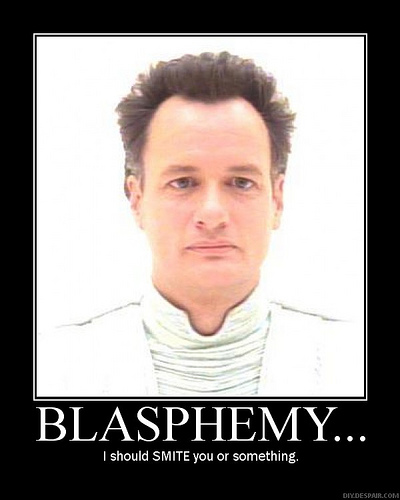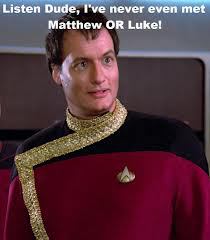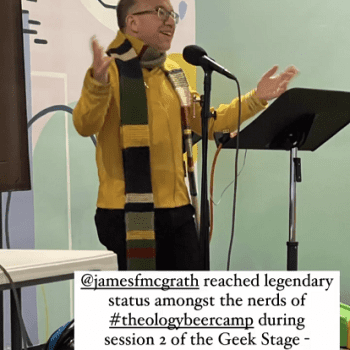 My post on mystics and atheists got a lot of attention. Dale Tuggy has responded (and the ending of his post inspired the title of this one).
My post on mystics and atheists got a lot of attention. Dale Tuggy has responded (and the ending of his post inspired the title of this one).
In response to his last question, I like Hans Küng’s way of putting it – that God ought to be thought of as “at least personal” rather than impersonal, but also as “more than personal” since God’s existence transcends the level of reality on which we experience personhood.
In other words, we need to find ways of emphasizing that, when we talk about God, we are talking about a reality greater than we are, and we cannot do so by merely saying either that God is something less than we are (impersonal) or something that we are (personal).
 On the question of whether “God did it” should be used as an explanation for anything, it is noteworthy that we have no events within the universe which provide unambiguous evidence of some sort of miraculous divine action. We have stories about seas parting in the past, but we do not have a contemporary case of a sea parting and slaves being freed as a result that we can point to and say, “Here we have something that cannot be explained in terms of the natural world as we understand it.”
On the question of whether “God did it” should be used as an explanation for anything, it is noteworthy that we have no events within the universe which provide unambiguous evidence of some sort of miraculous divine action. We have stories about seas parting in the past, but we do not have a contemporary case of a sea parting and slaves being freed as a result that we can point to and say, “Here we have something that cannot be explained in terms of the natural world as we understand it.”
This connects with my statement that the live options for theist trajectories seem to lie either in Deism or panentheism. One can say that God set the whole thing in motion, or that God is at work in the entirety in all its natural occurrences. But to say that God once parted seas and flooded worlds and now helps Americans find parking spaces is, in my opinion, a move backwards and not forwards in our theological thinking. Indeed, that there are religious believers who will deal with the problem of evil by saying that God does not intervene to prevent genocides and rapes and starvation on a grand scale in order to allow room for free will, but who will then thank God for intervening to get them a job or help them find a bargain at the mall, is not merely disturbing but truly sickening.
There is a lot of interesting food for thought in Dale’s post and so I hope that there will be some discussion there and also here. Another commenter in the aforementioned post recommended reading about “Ultimism” by J. L. Schellenberg, and so that also seems worth mentioning.












